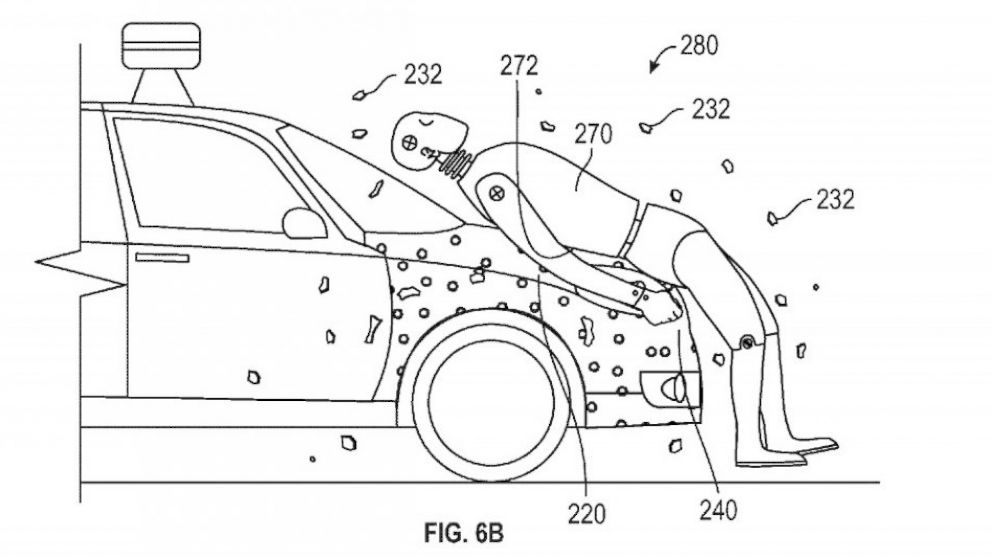Google Patents Sticky Car Hood to Trap Pedestrians in a Collision
The human flypaper is designed to mitigate injuries when a car, person collide.

— -- Google has a solution to help mitigate injuries in the event a pedestrian and a self-driving car collide: human flypaper.
In a patent issued this week, the search giant describes a "system for protecting a colliding object from a secondary impact, after an initial impact with a vehicle."
The patent calls for a giant sticker to be placed on the front end of a vehicle, with a special coating over the layer that is only broken when something collides with the vehicle, exposing the adhesive and helping the colliding object to remain on the vehicle.
The idea is to prevent a pedestrian from being thrown after the impact and potentially sustaining even more injuries.
"In the event of a collision between a vehicle and a pedestrian, injury to the pedestrian is often caused not only by the initial impact of the vehicle and the pedestrian, but also by the ensuing, secondary impact between the pedestrian and the road surface or other object," Google writes in the patent.
In the United States, more than 32,000 people are killed on the road every year, according to data from the National Highway Traffic Safety Administration. Google has said its self-driving technology could have the potential to drastically reduce the number of fatalities on the road.
With 360-degrees of awareness, the self-driving cars are gaining new insights into dangerous driving behaviors, including drifting between lanes and running red lights -- both of which can contribute to accidents. Google said it has logged more than 2 million miles to date on the road.




